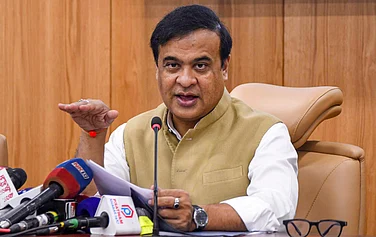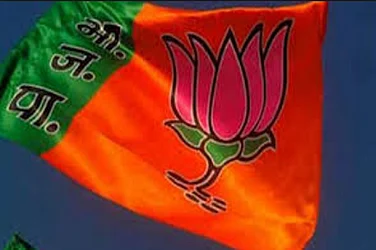THE battle lines are etched clearly. And nothing is sacred. Not even Mother Teresa. As the Church, the BJP and the lady herself have found out in the wake of the controversythat has erupted over the higher profile the Church has sought for the Dalit Christian agitation. But the demand for the regime of reservations to be extended to Christians of Scheduled Caste (SC) origin being led by the Church has, apart from throwing up a host of contentious issues, had two extremely significant consequences. It seems to have ensured that 1995 has been the annus horriblis for Mother Teresa; she has been attacked openly for coming out in support of an allegedly sectarian agenda for the first time in India and this comes close on the heels of a book which has been severely critical of her. And it has caused a rift in the BJP (which seemed to have been taken completely by surprise) with senior party leaders already trying to distance themselves from the utterances of the party spokesperson.
At stake is the fate of over 1.6 croreChristians of SC origin who form part of the two-crore-strong Christian diaspora in India. But the large number of Christians who have Dalit origins, comes as a surprise to many. And critics point to this fact as evidence of the essentially proselytising nature of the Church in India which is accused of having used "allurements" to attract the poor and dispossessed to swell its numbers.
The argument of the Church is simple. "We want the benefits of reservations to be extended to Christians who, before they adopted the faith, were Dalits," says the Auxiliary Bishop of Delhi, Vincent Concessao. "We neither see a contradiction in raising this demand, nor do we seein it a failure of Christianity. This is so because though Christianity recognises no such divisions, the social realities of the country are such that these people are still treated as untouchables. Not by us, let me empha-sise, but by society in general. Christianity is their faith, but the stigmaof caste is very strong. Surely, they should not be condemned for what they have to suffer and for believing in their religion."
The Church has gone about its agitation in a very methodical manner. It has adopted an inter-denominational approach and representatives of the various streams have been brought together under the common banner of the "action committee" which has its regional variants. Says Brother Jose Daniel, a con-venor of the action committee: "We are not aking for any expansion of the SC list or an increase in the reservation quota. We only want the Christians of Dalit origin to be included in the present list identified by the Constitutional Order of 1950, by means of legislation. Also, it is incorrect to say that we areraising this demand now. Leaders of the community have been making representations to successive Prime Ministers, from Nehru to Narasimha Rao."
But this upping of the ante, as Concessao admits, can be traced to a more radical approach and the ascendancy of liberation theology within the Church. There is a very clear link between the fact that the influ-ence of the liberation theologists in India was the most pronounced in south India and that Tamil Nadu, Kerala, Andhra Pradesh and Karnataka are also the states which have the highest concentration of SC Christians (over 70 per cent). This is also why the state government in Tamil Nadu, for example, has been pressing for their inclusion in the SC list. Most political parties in the region do not oppose the move to extend reservations to Dalit Christians.
Both Concessao and Daniel brush aside criticism of the means adopted to press the Dalit Christian demand: "We believe that education involves exposure to social conditions and the injustice prevalent in society," says Concessao.
The Church also points to the fact that those among the Scheduled Tribes who converted to Christianity retain the benefits of reservations. In addition, it holds that in 1956, Sikhs of SC origin and in 1991 the neo-Buddhists (the overwhelming majority ofwhom were Dalits before conversion) were brought within the ambit of reservations. "Why this discrimination on the basis of religion among the poorest of the poor?" asks Pritam Santram, Bishop of Delhi, Church of North India.
That is a question the BJP is wrestling with. Says a senior party leader: "I admit that the official reaction was a disaster. And we have begun the process of disaster management. I met representatives of the Church and clarified our stand and we ensured that the VHP did not go overboard with its protest. The next few days and weeks are going to see a tempering of our stand." BJP spokesperson Sushma Swaraj, had termed the Dalit Christian demand "patently illogical".
Govindacharya, BJP general secretary, puts it differently: "There is merit in the case being made out for reservations, when social realities are taken into account. But even as I say that, this issue cannot be seen in isolation. There is a context to the entireissue. We need clarifications and assurances on the attitude of the Church towards pros-elytising and its colonial roots, the allurement-based conversions which the Church still indulges in and the question of foreign funding. If they move one step forward, they will find us two steps ahead. We can accept the social realities, but they are in conflict with the political reality."
The BJP is obviously in a bind. It cannot oppose the demand for reservations as it too has accepted positive discrimination for the emancipation of the oppressed as state policy, while its political interests and ideological basis would be threatened if the demand is conceded. Sources in the BJP admit that the party is "looking desperately for a compromise". But they hope that the controversy over MotherTeresa will help deflect attention from them, for a while.
But the mask does slip whenit comes down to the wire. "If the choice is between social justice and the existence of the nation, which is threatened not by the demand for reservations but by the context in which the Church has raised the issue, we will opt for the latter," adds Govindacharya.
So, is the movement all part of the Church's "grand design"? "Of course not. It can safely be dismissed as the paranoia of the conspiracy theorists," says a high-ranking clergyman. Yet, it would be naive to believe that the issue is free from any political overtones. To wit, the Congress party is looking for support among the minorities, the general elections are looming and, as Church officials themselves admit, Mother Teresa was used to give the agitation a high-profile. Clearly, the issue is likely to be debated for some time yet.


























